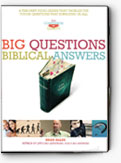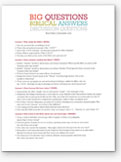The Bible teaches moral absolutes: there are certain things either right or wrong that God has declared. These standards, or norms, of right and wrong, are grounded in God’s holy character. He is holy, so he expects holy behavior out of His creation. How do you know that’s true? In Deuteronomy 32:4, it says, “He [&hellip
The next blogs focus on the topic of ethics. What does the word “ethics” mean? Ethics are the standards and norms of right and wrong. In other words, these are the ways to measure if something is wrong or right, much like a target shows a hit or miss. There are two basic beliefs about [&hellip
This blog series ends with some concluding thoughts on philosophy from a Christian perspective. If philosophy is the search for meaning and purpose in life, then the Bible gives humans two directives: the Cultural Commission and the Great Commission. The Cultural Commission is for all people, whether they confess Christ as Lord or not. It [&hellip
This blog series continues with a focus on the Christian worldview of philosophy. What if the Christian worldview of philosophy is wrong? During a debate on life’s origins, Dr. William Provine of Cornell University stated the implications of naturalism and evolution for humanity. In no uncertain terms, he stated that there is no God (or [&hellip
This month’s blogs series continues on the subject of philosophy. The Bible teaches that there are two realms of reality, the natural and supernatural. We believe we can known some of the supernatural realm through the Bible, and know the natural realm through our experience and reason. Yet the question may arise–how do we know [&hellip
These blogs on truth continue with a series on philosophy. Don’t be intimidated by that word! We all have a philosophy. But first things first. What is meant by “philosophy’? The word” philosophy” literally means “the love of wisdom.” The dictionary definition means studying reality and the meaning of life. If we focus on what people [&hellip
There are two good answers when answering the question, “Does God exist?” The answers are order and morality. We focused on order last blog, so let’s focus on morality. Nearly everyone has a sense of right and wrong, and there is a universal agreement that there are certain things that should not happen, like theft [&hellip
Let’s continue to examine theology, the study of God, by looking at arguments for God’s existence. You might wonder, how do we know that God exists? That’s a good question. And here are two good answers: order and morality. God reveals Himself by creation—that He is. This is called a natural knowledge of God, and [&hellip
Theology means “the study of God.” This series of blogs will address atheism, pantheism, and arguments for God’s existence. Let’s continue with the concept of pantheism. Pantheism says that everything is God. However, the Bible reveals that God is not part of the creation; He is the Creator who made all things. Genesis 1:1 states [&hellip
Do you want to know the truth about God? Let’s talk theology. Theology means “the study of God.” This series of blogs will address atheism, pantheism, and arguments for God’s existence. Before we study God, we have to know some concepts regarding beliefs about God. There are basically four beliefs about God: theism, pantheism, atheism, and agnosticism. [&hellip





















0
Comments
Add